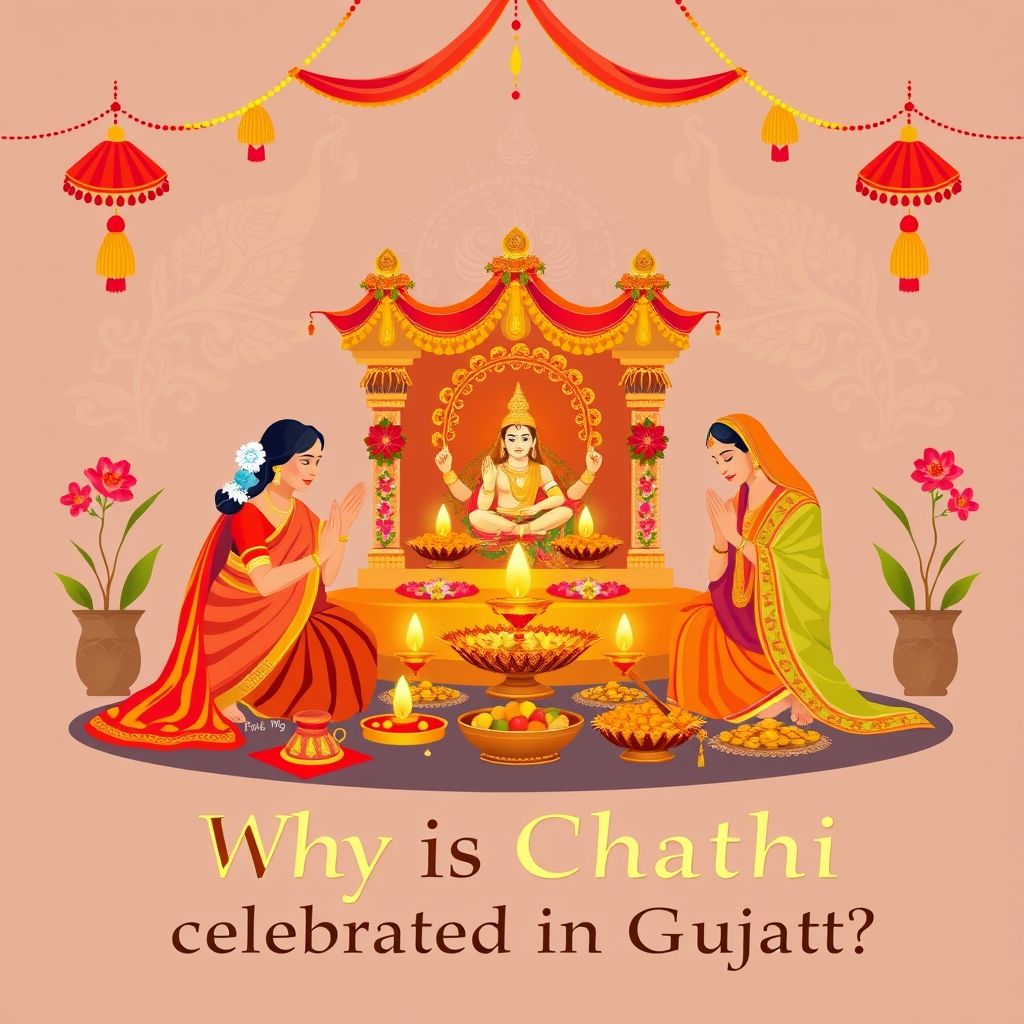
Why is Chatthi ceremony celebrated in Gujarat
Share
Great question 👍 Let me explain in detail.
The “Chhathi” (છઠ્ઠી) ceremony in Gujarat is a traditional ritual celebrated for newborn babies. It is a part of Gujarati culture and has both religious and social significance.
📖 Meaning of Chhathi
-
“Chhathi” literally means sixth day.
-
It is celebrated on the 6th day after the baby’s birth (sometimes on the 5th or 7th, depending on customs).
-
People believe that on this day, Vidhata (Goddess of Destiny / Goddess of Writing Fate) comes to write the baby’s future (luck, health, and destiny) on its forehead.
🙏 Religious Beliefs
-
Vidhata Mata writes destiny – On this night, it is believed that the goddess visits the baby and writes its fate for life.
-
Protection from evil eyes – The ceremony includes prayers and rituals to protect the newborn from negative energies.
-
First formal welcome – It is like officially welcoming the baby into the family and community.
🎉 Rituals of Chhathi in Gujarat
-
Cleanliness & Purity – The house, especially the baby’s room, is cleaned and decorated.
-
Chhathi Maa ni Pooja – A small puja is performed with diya (lamp), flowers, and sweets to honor Chhathi Mata.
-
Special Food – Traditional foods like Lapsi (sweet dish made of broken wheat & ghee) are prepared.
-
Baby’s Clothes & Cradle – The baby is dressed in new clothes and sometimes placed in a decorated cradle.
-
Relatives & Neighbors – Family members and close relatives are invited, and gifts/blessings are given to the baby.
-
Writing Ritual – In some families, a small symbolic ritual is done where elders write “Shubh” or baby’s name with sandalwood/kumkum near the cradle.
🌸 Cultural Significance
-
Strengthens family and community bonds.
-
Introduces the baby to family traditions.
-
Blessings for baby’s health, long life, and good fortune.
👉 In short: Chhathi is celebrated in Gujarat to honor Vidhata Mata, who is believed to write the newborn’s destiny on the sixth day. The ceremony is both spiritual and cultural, ensuring blessings, protection, and a joyful welcome for the baby.
